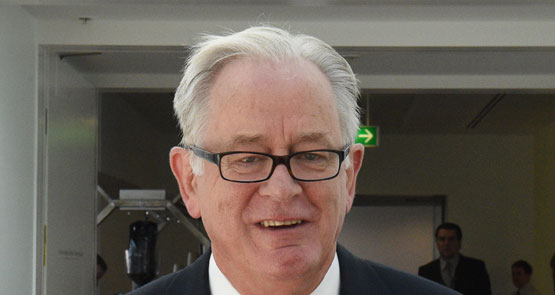
Is Andrew Robb breaching the ministerial code of conduct with his post-political job with Landbridge Group?
Not necessarily. The relevant part of the code of conduct is:
“Ministers are required to undertake that, for an eighteen month period after ceasing to be a Minister, they will not lobby, advocate or have business meetings with members of the government, parliament, public service or defence force on any matters on which they have had official dealings as Minister in their last eighteen months in office. Ministers are also required to undertake that, on leaving office, they will not take personal advantage of information to which they have had access as a Minister, where that information is not generally available to the public.”
So Robb has two requirements — not to use any confidential information he had access to as minister, and not lobby, advocate or meet with government ministers, parliamentarians or public servants until August next year, 18 months after he left office.
The first is virtually unknowable. The second is more testable. But what’s different about Robb is that, unlike most ministers, acquaintanceship with his former colleagues and an understanding of how party and parliamentary processes work isn’t the only string to his bow: Robb was an economist, a former head of the National Farmers’ Federation, and a board member of large companies before politics. The translated Landbridge statement about his appointment obtained by the ABC referred to his “global vision and global influence”, suggesting his links with foreign governments forged during his time as Trade Minister — including, presumably, the Chinese government — are also valued. So Landbridge could quite plausibly want Robb for skills other than his connections with Canberra, especially given his dogged advocacy of foreign investment.
In contrast to the case of Ian Macfarlane, it’s not anywhere near as open and shut. Macfarlane’s job as CEO of the Queensland Resources Council places him in a position where any contact he has with ministers, parliamentarians or public servants is likely to relate to the area of his ministerial responsibilities, resources. That Macfarlane’s job was waved through by Turnbull’s office suggests the ministerial code of conduct is virtually a dead letter under this government. But then, the code has no actual consequences for anyone who has left politics: the restriction entirely relates to politicians and public servants who remain in office — they are supposed to not meet with unregistered lobbyists, including former ministers, under the lobbying code of conduct. However, that only applies to third party lobbyists. A company or peak body executive (like Macfarlane), or in-house lobbyist, isn’t subject to the lobbying code of conduct, and ministers and officials can meet with them without any restriction.
The Canadians have a different approach. They don’t discriminate between in-house and consultant lobbyists — both are subject to the same rules. Former ministers and public servants are banned from lobbying at all for five years after leaving office. And their “code of conduct” is actual legislation, with actual fines and imprisonment for breaches, overseen by a Commissioner of Lobbying. The Canadians also have much stricter reporting requirements: lobbyists have to provide a monthly report on whom they contacted or met with.
A government serious about regulating lobbying would pick up at least some of those measures, because plainly having a lousy “code” that is ignored by the government of the day isn’t doing the trick.








I won’t be holding my breath waiting for the current crop of future ex-Ministers to enact this sort of thing!
Surely this is a reward for the free kicks China got in the FTA. All the surrender of sovereignty over jobs. We don’t decide who works here. And of course all the lobbying for Chinese coal mines. It feels like the act and payment of Judas to me and if I were king the ex minister’s noggin would be on a pikestaff outside traitor’s gate.
Another bought doorman – in the Arfa Sinodinos mould?
I am only surprised at the surprise some people who should/do know better are displaying.
As everyone said as Robb was robbing us with the secret panderings… sorry negotiations with TPPT.
I remember how some were telling us what a clean-skin minister Robb was (much like Bishop : in spite of Monis letters/misleading parliament/”misquoting” Indonesian government ministers and officials/working hand-in-hand with Scrott Morrison doing refugee deals with the Mahinda Rajapaksa government of Sri Lanka/earning Chinese rebukes?) : suddenly he’s “changed”?